First of all your method of using a table of values will be by far the fastest method to use. As far as overflow is concerned, I would like to come back to that shortly.
If you are serious about running as fast possible, there are ways of making things go faster by analysing the problem a little. It is very tempting to assume that to find all values when you know how to find one, you just need to iterate through all values up to your max. It is rarely true that this is efficient, I am afraid, and this is such a case.
To see that this is true, just think about calculating the numbers 1034, 1304, 1403 and 1340. All the calculations are actually exactly the same, so we can reduce our calculations very substantially by only examining digits going in descending order (in our case 4310). Having calculated 4^4 + 3^4 + 1^ 4 + 0^4 we then simply need to check that the result contains the digits 4,3,1 and 0. If it does then the number calculated is narcissistic. This notion also helps with minimising overflow tests, because it means that if 8000, for example overflows, there is no point in even checking larger numbers. On the other hand there is a balance between short circuiting, and introducing complexity through if statement.
The down side to this is that numbers are not generated in order, so some sort of sorting may be required at the end. (I have not done this). On the upside, though, it allows for a parallel for loop to be used. In practice this did not save much time (maybe 10% on my machine) because the overheads of using multiple threads largely offset the gains in doing things in parallel. The code below shows both ways.
The program below allows the user to input a number of digits (rather than a maximum value) to test and also deals with overflows. I did that for simplicity of coding. On my machine calculation all 19 digit narcissistic < 2^63 took about 6 seconds.
unit UnitNarcisistCalc;
interface
uses
System.Classes,
System.SysUtils,
System.Threading,
System.SyncObjs;
type
TCalcArray = array[ 0..9] of int64;
TNarcisistCalc = class
(* Calculated narcisistic number of a certain size *)
private
class function CheckResult( const pSum : int64; const DigitsUsed : TCalcArray; const DigitCount : integer ) : boolean;
class procedure AddADigit( const pDigit, pDigitsLeft : integer; const pSumSoFar : int64;
const pPowers, DigitsUsed : TCalcArray;
const pResults : TStrings; const DigitCount : integer );
protected
public
class procedure CalcNos( const pOfSize : integer; const pResults : TStrings;
pParallel : boolean );
end;
implementation
{ TNarcisistCalc }
class procedure TNarcisistCalc.AddADigit(const pDigit, pDigitsLeft: integer;
const pSumSoFar: int64; const pPowers, DigitsUsed: TCalcArray;
const pResults: TStrings; const DigitCount : integer );
var
iNewSum : int64;
i : integer;
iDigitsUsed : TCalcArray;
iOverflowMsg : string;
j: Integer;
begin
{
This recursive function builds the sum progressively until
pDigitsLeft = 0; We are careful to make all parameters const
so we don't accidently reuse anything.
}
iDigitsUsed := DigitsUsed;
iNewSum := pSumSoFar + pPowers[ pDigit ];
inc( iDigitsUsed[ pDigit ]);
if iNewSum < 0 then
begin
// overflow - so ditch this strand.
iOverflowMsg := 'Overflowed while evaluating ';
for i := 9 downto 0 do
begin
for j := 1 to iDigitsUsed[ i ] do
begin
iOverflowMsg := iOverflowMsg+ IntToStr( i );
end;
end;
pResults.Add( iOverflowMsg );
exit;
end;
if pDigitsLeft > 1 then // because we are not descrementing pDigitsLeft left even though logically we should
begin
for i := 0 to pDigit do
begin
AddADigit( i, pDigitsLeft - 1, iNewSum, pPowers, iDigitsUsed, pResults, DigitCount + 1 );
end;
end
else
begin
// lowest level
if CheckResult( pSumSoFar, iDigitsUsed, DigitCount + 1 ) then
begin
pResults.Add( IntToStr( pSumSoFar ));
end;
end;
end;
class procedure TNarcisistCalc.CalcNos(const pOfSize: integer;
const pResults: TStrings; pParallel : boolean);
var
fPowers : TCalcArray;
fUsed : TCalcArray;
i: Integer;
j: Integer;
iMaxDigit : integer;
iOverflow : Boolean;
iSum : int64;
iOverflowMsg : string;
iStrings : array[ 0.. 9 ] of TStringList;
begin
// calculate the powwers
pResults.Clear;
iOverFlow := FALSE;
iMaxDigit := 0;
for i := 0 to 9 do
begin
fPowers[ i ] := i;
fUsed[ i ] := 0;
for j := 2 to pOfSize do
begin
fPowers[ i ] := fPowers[ i ] * i;
if fPowers[ i ] < 0 then
begin
// overflow
iOverflow := TRUE;
iOverflowMsg := 'Overflowed while evaluating ' + IntToStr( i ) + '^' + IntToStr( pOfSize );
pResults.Add( iOverflowMsg );
break;
end;
end;
if iOverflow then
begin
break;
end
else
begin
iMaxDigit := i;
end;
end;
// we have set up our tabs and also prepared to not test any digits that
// would automatically give an overflow
if pParallel then
begin
TParallel.&For( 1, iMaxDigit, procedure(I : Integer )
var
iSum : int64;
begin
iStrings[ i ] := TStringList.Create;
iSum := 0;
AddADigit( i, pOfSize, iSum, fPowers, fUsed, iStrings[ i ], 0 );
end);
for i := 1 to iMaxDigit do
begin
pResults.AddStrings( iStrings[ i ]);
iStrings[ i ].Free;
end;
end
else
begin
for i := 1 to iMaxDigit do
begin
iSum := 0;
AddADigit( i, pOfSize, iSum, fPowers, fUsed, pResults, 0 );
end;
end;
end;
class function TNarcisistCalc.CheckResult(const pSum: int64;
const DigitsUsed: TCalcArray; const DigitCount : integer): boolean;
var
iDigitsUsed : TCalcArray;
iDigit, iSum : int64;
iDigitCount : integer;
begin
{ what we are doing here is checking if pSum contains the
same digits that were used to create it in the first place. }
iDigitsUsed := DigitsUsed;
iDigitCount := DigitCount;
iSum := pSum;
while iSum > 0 do
begin
iDigit := iSum mod 10;
iSum := iSum Div 10;
if iDigitsUsed[ iDigit ] > 0 then
begin
dec( iDigitsUsed[ iDigit ]);
dec( iDigitCount );
end
else
begin
Result := FALSE;
exit;
end;
end;
Result := iDigitCount = 0;
end;
end.
It would be interesting to know how this approach compares with yours.
The result for 19 digit numbers is shown below:

(Non parallel)
and

(Parallel)

